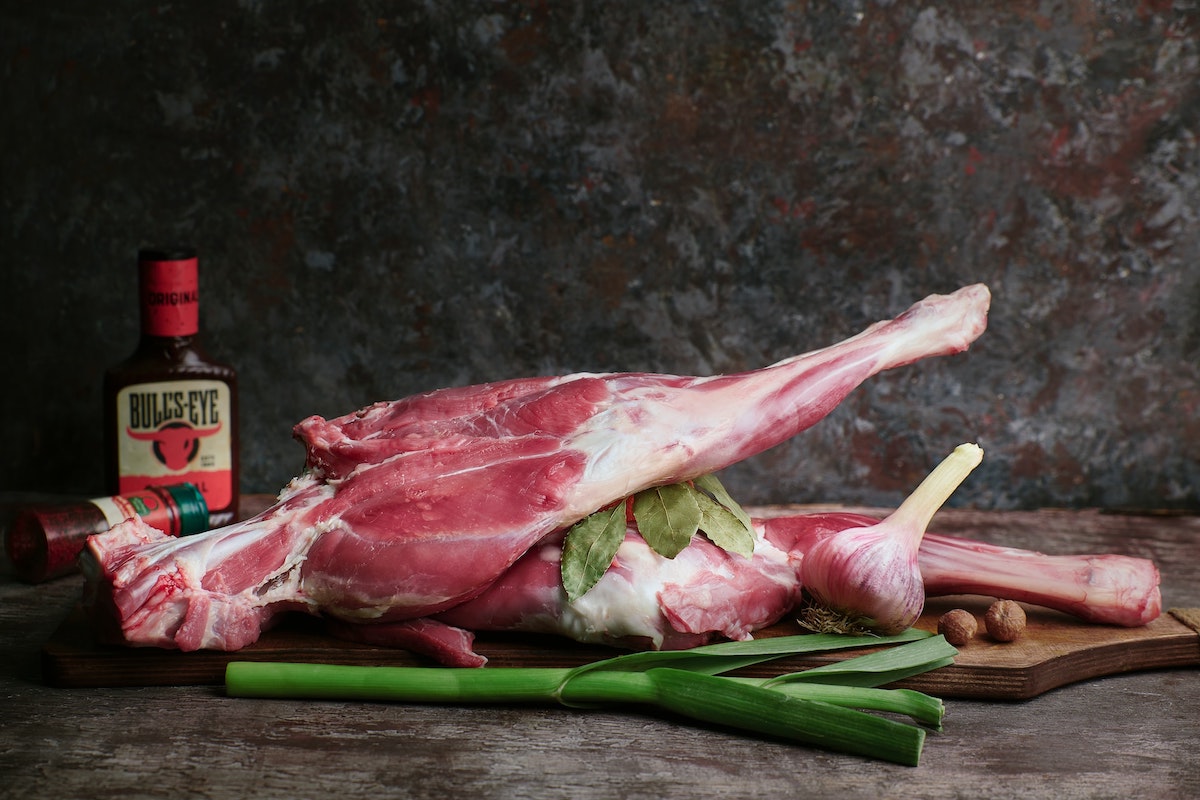Is Lamb Healthy? Benefits, Nutrition Facts & Delicious Recipes to Try

Is Lamb Healthy? Benefits, Nutrition Facts & Delicious Recipes to Try
If you've wondered whether lamb is healthy for your diet, the answer may surprise you! Lamb is a nutrient-dense red meat packed with vitamins, minerals, protein, and healthy fats. It also offers significant health benefits, from improved heart health to increased muscle mass.
This blog post will look at several delectable recipes and nutritional information for lamb. We'll also discuss the potential health benefits of including this delightful meat in your diet and how to prepare it safely. The information in this post will give you all you need to decide whether to include lamb in your meals.
What is Lamb?
Red meat that comes from sheep is called lamb. It has various health advantages and is a vital source of protein and other nutrients.
Lamb is a good source of protein, iron, zinc, and vitamin B12. Conjugated linoleic acid (CLA), which has been linked to several health advantages, including lowering body fat and enhancing insulin sensitivity, is another component.
Generally speaking, lamb is a nutritious food. However, it should only be consumed occasionally due to its high content of saturated fat and cholesterol.
There are many delicious ways to prepare lamb. It can be grilled, roasted, or cooked in stew or curry. Lamb pairs well with intense flavors like garlic, rosemary, mint, and chili pepper.
The Nutritional Benefits of Lamb
Most of us know that lamb is a nutritious source of protein, but there are other nutritional benefits of this popular meat. Several vitamins and minerals, such as zinc, selenium, vitamin B12, and niacin, are also abundant in lamb. Lamb also includes conjugated linoleic acid (CLA), a type of lipid with numerous health advantages, including lowering inflammation and enhancing blood sugar regulation.
Regarding its nutrient content, lamb is similar to other types of red meat. However, it does have a few unique characteristics that make it slightly healthier than other meats. For example, lamb is lower in saturated fat than beef and pork. It's also a good source of omega-3 fatty acids linked to various health benefits, including improved heart health and reduced inflammation.
L lamb is an excellent choice if you're searching for a tasty and wholesome way to increase your protein intake. Whether you enjoy it grilled, roasted, or stewed, there are plenty of ways to incorporate this healthy meat into your favorite recipes.
Lamb Recipes
Lamb is a delicious and healthy option for your next meal. This versatile meat can be cooked in many different ways, making it an excellent choice for any occasion. Here are some of our favorite lamb recipes to try:
Lamb chops with rosemary and garlic: This classic dish is simple and always a hit. Season lamb chops with rosemary, garlic, salt, and pepper, then cook on the grill or in the oven. Serve with roasted potatoes and green beans for a complete meal.
Slow cooker lamb stew: This hearty stew is perfect for a cold winter day. Cut some lamb into cubes and add it to the slow cooker with carrots, potatoes, peas, and your favorite herbs. Cook the meat until it is soft and breaking apart. Serve with fresh rice or toast.
Moroccan lamb skewers: These flavorful skewers are perfect for an outdoor BBQ. Marinate lamb cubes in a mixture of Moroccan spices overnight, then thread them onto skewers with onions and bell peppers. Grill until the meat is cooked, then serve with a dollop of yogurt sauce.
Is Lamb Healthy for Everyone?
Lamb is a nutritious and delicious meat that people of all ages can enjoy. While it is generally considered healthy, some people should avoid eating lamb or limit their intake.
Individuals with certain medical conditions such as gout, arthritis, or kidney disease may need to avoid lamb due to its high purine content. Purines are natural compounds in all meats and can cause problems for people with these conditions.
Additionally, a source of cholesterol and saturated fat is lamb. While these nutrients are necessary for our bodies, too much can lead to health problems such as heart disease and obesity. Therefore, if you have excessive cholesterol or are at risk for heart disease, limiting your intake of lamb is imperative.
Finally, pregnant women and young children should avoid eating undercooked lamb. This is because lamb can contain harmful bacteria that can cause illness in these vulnerable populations. If you choose to eat lamb, ensure it is cooked thoroughly until the meat is no longer pink in the center.
Tips for Cooking Lamb
Lamb is a delicious, healthy, and versatile meat that can be cooked in various ways. Here are some tips for cooking lamb:
When choosing a lamb cut, look for well-marbled amounts with fat. This will keep the meat tasty and moist while it cooks.
Remember to experiment with various herbs and spices when flavoring your lamb dish because lamb goes well with intense flavors.
If you're new to cooking lamb, start with a simple recipe such as roasted leg of lamb or lamb chops. These dishes are relatively easy to make and easily customized to your liking.
When cooking lamb, cook it until it reaches an internal temperature of 145 degrees Fahrenheit. This will ensure that the meat is cooked through and juicy.
By following these tips, you'll be able to create delicious, healthy, and satisfying lamb dishes that everyone will love!
Conclusion
As you can see, lamb is an incredibly nutritious meat with many health benefits. It is rich in vitamins and minerals, making it a great source of nourishment for your body. Furthermore, its high-quality protein content makes it a great addition to any diet.
With all the delicious recipes available, there's no excuse not to give lamb dishes a chance! Enjoy experimenting with different flavors and techniques, and ensure you get your recommended daily dose of lamb!

